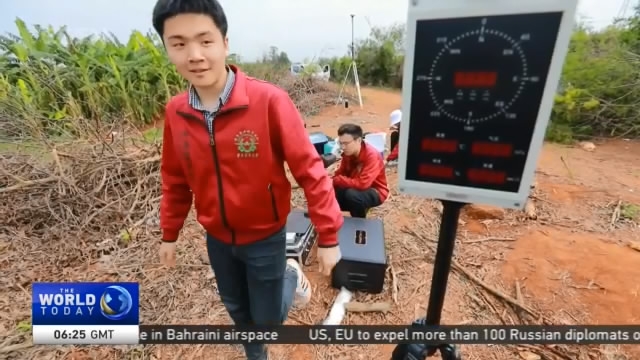
14:51, 27-Mar-2018
Agriculture Drones: Drone spraying: The future of China's agricultural modernization

China is the world's top consumer of agricultural pesticides and at the same time, the leading manufacturer of drones. So it's fitting that some people in southern China are using drones to reduce the country's consumption of pesticides. Ge Yunfei has the story.
WANG JUAN, POST-DOCTORAL FELLOW SOUTH CHINA AGRICULTURAL UNIVERSITY "From north to south, China is a vast country. We have severe pesticide pollution on farmland. There are two top concerns for the people: air and food. We have great confidence in reducing China's pesticide pollution. And drone spraying has a lot of potential to achieve that."
In 2016, over 1.8 million tons of pesticides were used in China, accounting for one-third of the world's total amount.
GE YUNFEI HAIKOU, HAINAN PROVINCE "This is how traditional spraying works. It takes two workers half a day to cover this field of wax gourd. But now with drone spraying, it only takes a drone 4 minutes to do the same job."
DENG JIAJIAN, MANAGER NONGFEIKE AGRICULTURAL TECHNOLOGY, HAINAN "Using drones to spray pesticides is 30 times more efficient than the traditional way. It reduces work for the farmers. And through many experiments, we found that drone spraying can save 25% of pesticide usage. It only takes 2 liters of water per acre for each drone to carry out its task. But with regular spraying, it takes 60 liters of water."
36-year-old Wang Juan, is a post-doctoral fellow at the South China Agricultural University. She and her team have been studying precision agricultural aviation pesticide spraying technology since 2014.
WANG JUAN, POST-DOCTORAL FELLOW SOUTH CHINA AGRICULTURAL UNIVERSITY "Our target is to achieve precise spraying. First, we use spectral cameras installed on the drone to scan farmland and generate a precise picture that can show the different levels of insect damage to the farmland. Then the drone can control the amount of pesticides sprayed on the crops according to their damage levels."
In order to achieve their goal, a huge amount of detailed work needs to be carried out. Wang and the students have to fly all over the country to carry out experiments on different crops, and collect the raw data piece by piece.
WANG JUAN, POST-DOCTORAL FELLOW SOUTH CHINA AGRICULTURAL UNIVERSITY "Aviation spraying is a very mature concept in the US but it's still a new thing in China. So the industry here doesn't have an operating standard. What's more complicated is that the standard for each crop in each stage of growth is different. So we're now trying to establish a standard model."
Currently, there are nearly 5,000 agricultural drones in China and the number is rapidly increasing with big manufacturers like DJI joining the arena. Wang hopes the government can introduce more preferential policies to support the development of agricultural drones. Ge Yufei, CGTN, Hainan Province.

SITEMAP
Copyright © 2018 CGTN. Beijing ICP prepared NO.16065310-3
Copyright © 2018 CGTN. Beijing ICP prepared NO.16065310-3